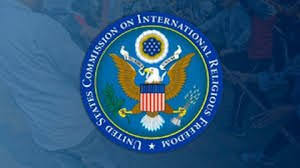USCIRF Report on India: Key Highlights

- 04 Oct 2024
In News:
The United States Commission on International Religious Freedom (USCIRF), a Washington DC-based bipartisan U.S. federal government agency, has released a country update on India, flagging “collapsing religious freedom conditions”.
- Agency Overview:
- The United States Commission on International Religious Freedom (USCIRF) is an independent, bipartisan U.S. federal commission established under the 1998 International Religious Freedom Act (IRFA).
- Its primary functions include reviewing global religious freedom violations, providing policy recommendations to U.S. leaders, and publishing annual reports.
- Current Concerns:
- USCIRF's latest report indicates a “collapse” in religious freedom conditions in India, particularly worsening throughout 2024, especially around national elections.
- Legal and Policy Changes:
- Strengthening of discriminatory legislation, including:
- State-level anti-conversion and anti-terrorism laws.
- Implementation rules for the 2019 Citizenship (Amendment) Act (CAA).
- Passage of a State-level Uniform Civil Code (UCC) Bill in Uttarakhand.
- Strengthening of discriminatory legislation, including:
- Violations and Incidents:
- Expropriation of Places of Worship:
- Authorities have facilitated the construction of Hindu temples on former mosque sites.
- Increased attacks on religious minorities, particularly following the consecration of the Ayodhya temple in January 2024.
- Targeting of Religious Minorities:
- Arrests of Christians accused of forced conversions under anti-conversion laws.
- Anti-cow slaughter laws exploited by vigilante groups to target Muslims, Christians, and Dalits, often with little to no legal repercussions for perpetrators.
- Expropriation of Places of Worship:
- Recommendations:
- USCIRF urges the U.S. State Department to designate India as a “Country of Particular Concern” due to severe violations of religious freedom.
About USCIRF
- Composition: Comprised of nine commissioners appointed by the U.S. President or Congressional leaders, supported by non-partisan staff.
- Objective: To monitor and recommend actions on religious freedom violations aligned with international human rights standards.
